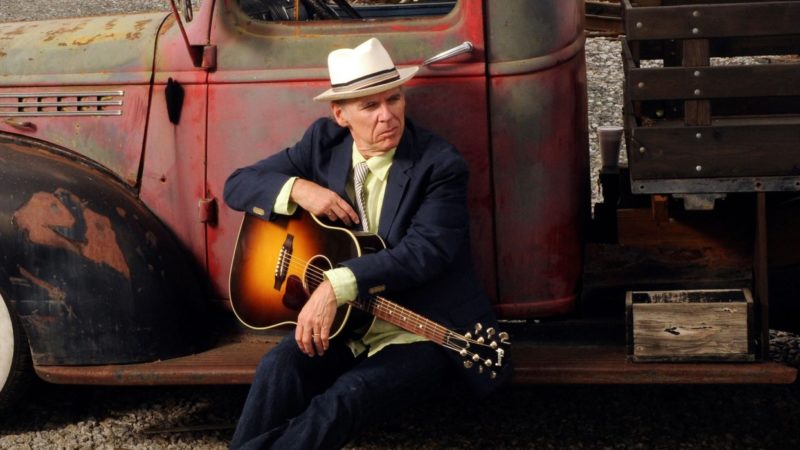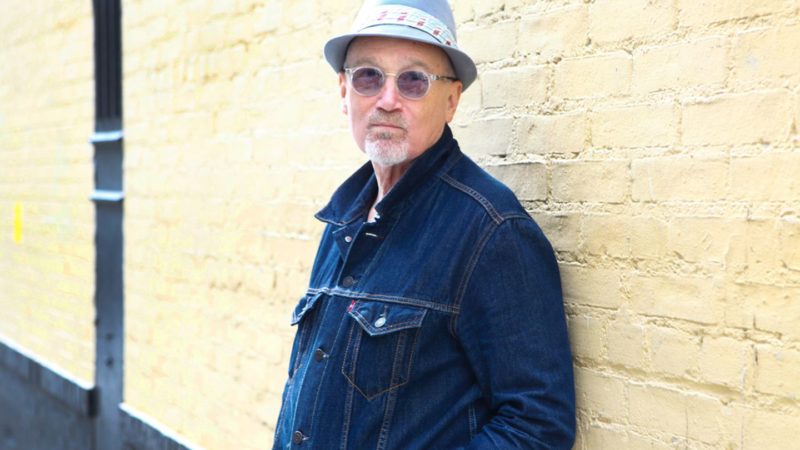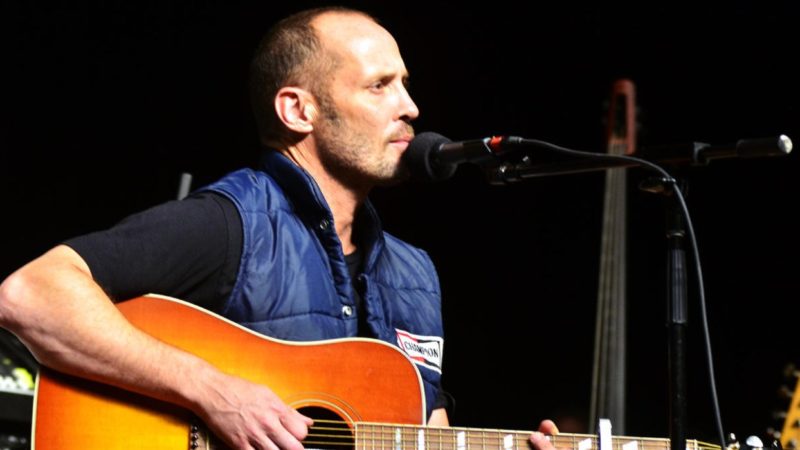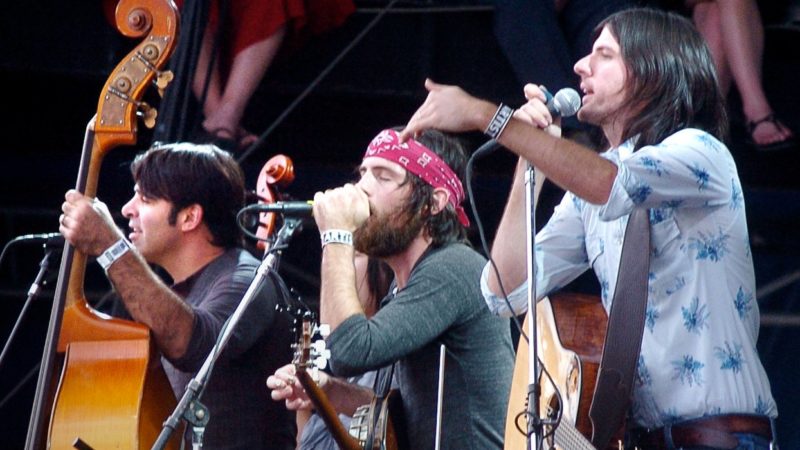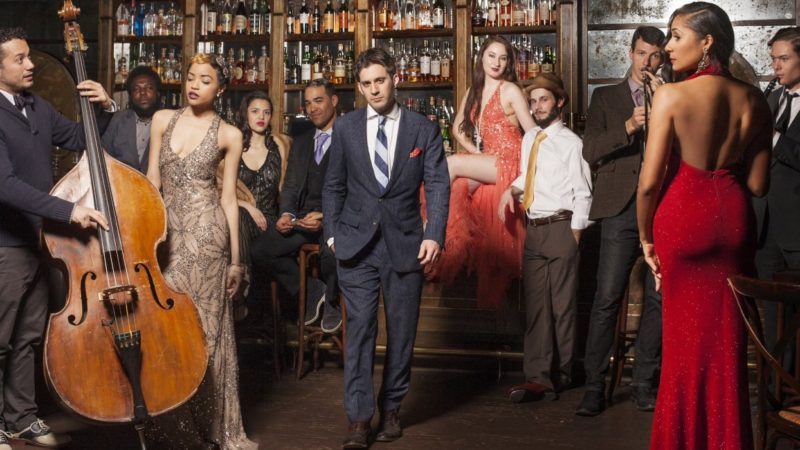John Hiatt
John Robert Hiatt is an American singer-songwriter and musician. He has played a variety of musical styles on his albums, including new wave, blues, and country. Hiatt has been nominated for nine Grammy Awards and has been awarded a variety of other distinctions in the music industry.
COUNTRY MUSIC HALL OF FAME® AND MUSEUM TO FEATURE JOHN HIATT AS NEXT POETS AND PROPHETS HONOREE
NASHVILLE, Tenn. – July 9, 2024 – The Country Music Hall of Fame® and Museum will feature singer-songwriter John Hiatt in the next installment of its in-depth interview series Poets and Prophets. The series features songwriters who have made significant contributions to country music. The program will take place on Saturday, Aug. 10, at 2:30 p.m. in the museum’s Ford Theater and is included with museum admission.
Throughout his 50-year recording career, Hiatt has established himself as one of the most acclaimed singer-songwriters of his generation, as well as a hit composer for country and rock artists alike. Bob Dylan, Bruce Springsteen and Country Music Hall of Fame members Emmylou Harris and Willie Nelson are among the artists who have covered his acerbic, soul-stirring songs.
Hiatt began his professional songwriting career at age 18, when he moved to Nashville to work at Tree Publishing. Over the next two decades, his songs became hits for Rosanne Cash (“The Way We Make a Broken Heart”), the Desert Rose Band (“She Don’t Love Nobody”) and Three Dog Night (“”Sure as I’m Sittin’ Here”). Hiatt found success as a recording artist with his landmark 1987 album, Bring the Family, which featured “Have a Little Faith in Me” and “Memphis in the Meantime,” among other enduring songs. In its wake, he went from earning cuts to being covered by some of music’s biggest names, including Bonnie Raitt (“Thing Called Love”) and B. B. King and Eric Clapton (“Riding with the King”).
Following a stint in Los Angeles, Hiatt returned to Nashville in the mid-1980s and has continued to write, perform and record. He has released more than two dozen albums, most recently 2021’s Leftover Feelings, a highly regarded collaboration with the Jerry Douglas Band, recorded at historic RCA Studio B. In 2008, Hiatt was inducted into the Nashville Songwriters Hall of Fame and received a lifetime achievement award for songwriting from the Americana Music Association. In 2019, he became the third recipient of the BMI Troubadour Award, which recognized his work as a songwriter.

Marshall Crenshaw
Marshall Crenshaw
Born in 1953 in Detroit, Michigan, Marshall Crenshaw learned to tune a guitar correctly at age ten and has been trying ever since. His first big break came in 1978 playing John Lennon in “Beatlemania”, first as an understudy in New York, then in the West Coast company followed by a national touring company. Removing himself from that situation in Feb. 1980, Marshall settled in New York City. After crossing paths with the great and legendary Alan Betrock, Marshall recorded his debut single “Something’s Gonna Happen” (for Betrock’s Shake Records label), which led to a deal with Warner Bros. His debut album, Marshall Crenshaw, was acclaimed as a masterpiece upon its release in 1982 and established him as a singular songwriter, record maker, and guitarist. The album spawned the hit single “Someday, Someway,” and other classics such as “(You’re My) Favorite Waste of Time,” “Whenever You’re On My Mind” and “Cynical Girl.”
Over the course of a career that’s spanned three decades, 13 albums, Grammy and Golden Globe nominations, film and TV appearances (Buddy Holly in “La Bamba”) and thousands of performances, Marshall Crenshaw’s musical output has maintained a consistent fidelity to the qualities of artfulness, craftsmanship and passion, and his efforts have been rewarded with the devotion of a broad and remarkably loyal fan base.
Along with touring around the country and the occasional recording project, Marshall currently hosts his own radio show, “The Bottomless Pit”, every Saturday at 10 PM on New York’s WFUV. Other current projects include a documentary film-in progress about legendary record producer Tom Wilson. Says Crenshaw, “This is a road that I never imagined taking before, but it’s been amazing and is going great..”
“Although he was seen as a latter-day Buddy Holly at the outset, he soon proved too talented and original to be anyone but himself.” – Trouser Press

Paul Thorn
Paul Thorn
The son of a preacher man, Mississippi-raised Thorn spent much of his childhood in church, participating in multiple weekly services with his father as well as at neighboring African American congregations, where he became entranced with the music whose infectious spirit is captured on the new album. (from Paul Thorn.com)

See loads of great video linked from his web site. Our offering above is an older one with an great message.
For “relationship smiles” watch these favorites: “Just Stay Married” and “Temporarily Forever”
Samantha Fish
Samantha Fish
A blues musician from Kansas City, Missouri, Samantha Fish impressed industry professionals as a teenager before scoring her first Billboard blues number one in her mid-twenties. Fish grew up in a musical family with a variety of genres, including a steady diet of classic rock radio. Her father played guitar and would sometimes jam with friends at home. Young Samantha started out as a drummer but switched to guitar at the age of 15. As a teen, she would sneak into local blues landmark the Knuckleheads Saloon to hear touring musicians, and she began sitting in with them from time to time after she became legal at 18.
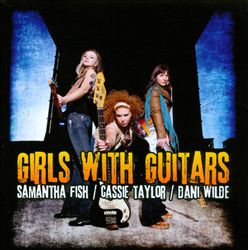 In 2009, Fish recorded the live album Live Bait as the Samantha Fish Blues Band, and the rock-edged guitar work brought her to the attention of Ruf Records. The label featured her alongside Cassie Taylor and Dani Wilde on the 2011 release Girls with Guitars, which featured covers of the Rolling Stones and the Steve Miller Band as well as original material from the three guitarist/singer/songwriters. Later that same year, Fish released her solo debut, Runaway, also with Ruf Records. It was produced by mentor and frequent collaborator Mike Zito.
In 2009, Fish recorded the live album Live Bait as the Samantha Fish Blues Band, and the rock-edged guitar work brought her to the attention of Ruf Records. The label featured her alongside Cassie Taylor and Dani Wilde on the 2011 release Girls with Guitars, which featured covers of the Rolling Stones and the Steve Miller Band as well as original material from the three guitarist/singer/songwriters. Later that same year, Fish released her solo debut, Runaway, also with Ruf Records. It was produced by mentor and frequent collaborator Mike Zito.
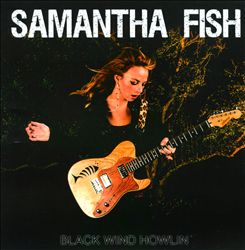 She saw her first chart success with her sophomore LP, Black Wind Howlin’, also produced by Zito. It hit the Billboard Heatseekers chart and reached the Top Ten of the blues albums chart upon release in 2013. She followed it with Wild at Heart in 2015, which became a blues number one. In 2017, she returned with her fourth studio album, Chills & Fever. Recorded in Detroit with members of the Detroit Cobras it featured covers of obscure pop and soul tunes.
She saw her first chart success with her sophomore LP, Black Wind Howlin’, also produced by Zito. It hit the Billboard Heatseekers chart and reached the Top Ten of the blues albums chart upon release in 2013. She followed it with Wild at Heart in 2015, which became a blues number one. In 2017, she returned with her fourth studio album, Chills & Fever. Recorded in Detroit with members of the Detroit Cobras it featured covers of obscure pop and soul tunes.
Also in 2017, Fish issued Belle of the West, recorded in Missouri with Luther Dickinson and featuring musical contributions by guitarist/harmonica player Lightnin’ Malcolm, former-Squirrel Nut Zipper Jimbo Mathus, violinist Lillie Mae Rische, and others. The album helped the guitarist pick up a 2018 Blues Music Association award for Contemporary Female Artist of the Year. Fish‘s seventh studio album, Kill or Be Kind, arrived in 2019 and found her working with producer Scott Billington in Memphis.
Artist Biography by Marcy Donelson
(For all “red links” above, please use back button to return here – see AllMusic.com to browse their site)
The Avett Brothers
The Avett Brothers
The Avett Brothers are an American folk rock band from Concord, North Carolina. The band is made up of two brothers, Scott Avett and Seth Avett along with Bob Crawford and Joe Kwon. Mike Marsh and Bonnie Avett-Rini are touring members of the band. Wikipedia
The band has gotten much exposure over the last few years and need no further introduction. Explore their site.

Postmodern Jukebox
Postmodern Jukebox
also widely known by the acronym PMJ, is a rotating musical collective founded by arranger and pianist Scott Bradlee in 2011. PMJ is known for reworking popular modern music into different vintage genres, especially early 20th century forms such as swing and jazz. Wikipedia
Breaking that down…PMJ takes songs you know, great singers and players, then performs them in an arrangement of an entirely different form than the original.
Check out the PMJ YouTube channel for a wide range of illustrations.


